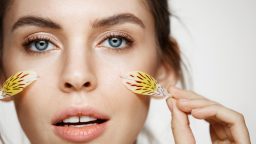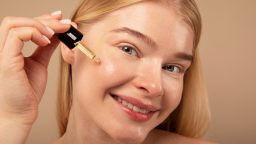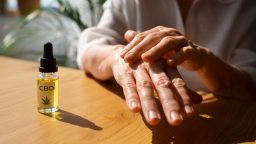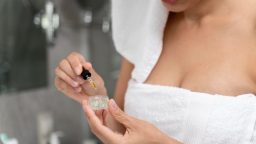When it comes to maintaining healthy skin, we often focus on what we put on our skin: the latest creams, serums, or face masks. However, one of the most powerful beauty treatments is completely free, doesn’t require a trip to the store, and can be done in the comfort of your own home. The secret? Sleep. Yes, your skin’s health and appearance are deeply affected by the quality of your rest. So, why exactly is beauty sleep so important, and how does it impact your skin? Let’s explore the science behind it.
The Science Behind Beauty Sleep
Sleep is the body’s time to repair and regenerate, and this process is essential for maintaining youthful, healthy skin. During the night, the body goes into repair mode, and this includes healing the skin. When you’re asleep, your body’s cell turnover rate increases, allowing your skin to repair itself from the daily wear and tear caused by environmental stressors, such as UV exposure and pollution.
Additionally, sleep helps your body produce human growth hormone (HGH), a vital protein that stimulates collagen production. Collagen is the key protein responsible for keeping your skin firm, plump, and elastic. As we age, our collagen production naturally decreases, which is why fine lines and wrinkles start to appear. But adequate sleep can help slow down this process by giving your body the chance to produce more collagen, keeping your skin looking youthful and refreshed.
Skin Repair and Regeneration
Throughout the day, your skin is exposed to countless environmental aggressors, including dirt, pollution, and UV rays. These factors can cause damage to skin cells, leading to irritation, dryness, and premature ageing. When you sleep, the body gets to work repairing the damage caused by these stressors. In fact, most skin repair happens while you’re in the deep stages of sleep, particularly during the slow-wave sleep phase.
During this time, the skin’s permeability increases, allowing for better absorption of nutrients and hydration. That’s why applying your favourite night cream or serum just before bed can be so effective—your skin is primed to absorb the ingredients and benefit from them more than during the daytime. The result? You wake up with smoother, more hydrated, and healthier-looking skin.
Sleep and the Skin’s Barrier Function
Your skin’s barrier is its first line of defence against harmful bacteria, environmental pollutants, and dehydration. Lack of sleep can impair this barrier function, leaving your skin vulnerable to damage. When you don’t get enough rest, your skin becomes more susceptible to irritation, redness, and even conditions like eczema or acne. Inadequate sleep also affects your skin’s ability to retain moisture, leading to dryness and a dull complexion.
Furthermore, insufficient sleep can disrupt the body’s natural production of cortisol, the stress hormone. High levels of cortisol can trigger inflammation in the skin, exacerbating conditions like acne, rosacea, and psoriasis. So, getting enough sleep is essential not only for keeping your skin barrier intact but also for preventing flare-ups of skin conditions.
The Connection Between Sleep and Dark Circles
If you’ve ever had a sleepless night, you’re probably familiar with the appearance of dark circles under your eyes. These tell-tale signs of fatigue are not just a cosmetic concern—they can be a sign of something deeper. When you’re sleep-deprived, blood flow to your skin decreases, causing blood vessels under the eyes to become more prominent. This leads to the characteristic dark circles and puffiness.
Moreover, lack of sleep causes the skin around the eyes to become thinner, which further contributes to the visibility of these dark circles. By prioritising your sleep, you can help reduce the appearance of tired eyes and restore a more refreshed, well-rested look.
Sleep and Skin Ageing
The longer you go without proper sleep, the more it takes a toll on your skin. Chronic sleep deprivation accelerates the ageing process, leading to fine lines, wrinkles, and sagging skin. Studies have shown that people who consistently get fewer than six hours of sleep per night have a higher likelihood of developing premature signs of ageing compared to those who get sufficient rest.
While sleep alone isn’t the magic bullet for anti-ageing, it certainly plays a crucial role in maintaining youthful skin. Restorative sleep helps maintain skin elasticity and volume, which are essential for a vibrant, smooth complexion.
Conclusion
It’s clear that beauty sleep is not just a myth—getting enough rest is essential for maintaining healthy, glowing skin. From boosting collagen production to repairing daily skin damage, sleep gives your skin the time and opportunity it needs to rejuvenate. So, if you want to wake up with a glowing complexion, make sure you’re getting enough sleep each night. After all, your skin deserves to be treated with the same care and attention you give your skincare routine—starting with a good night’s rest.





